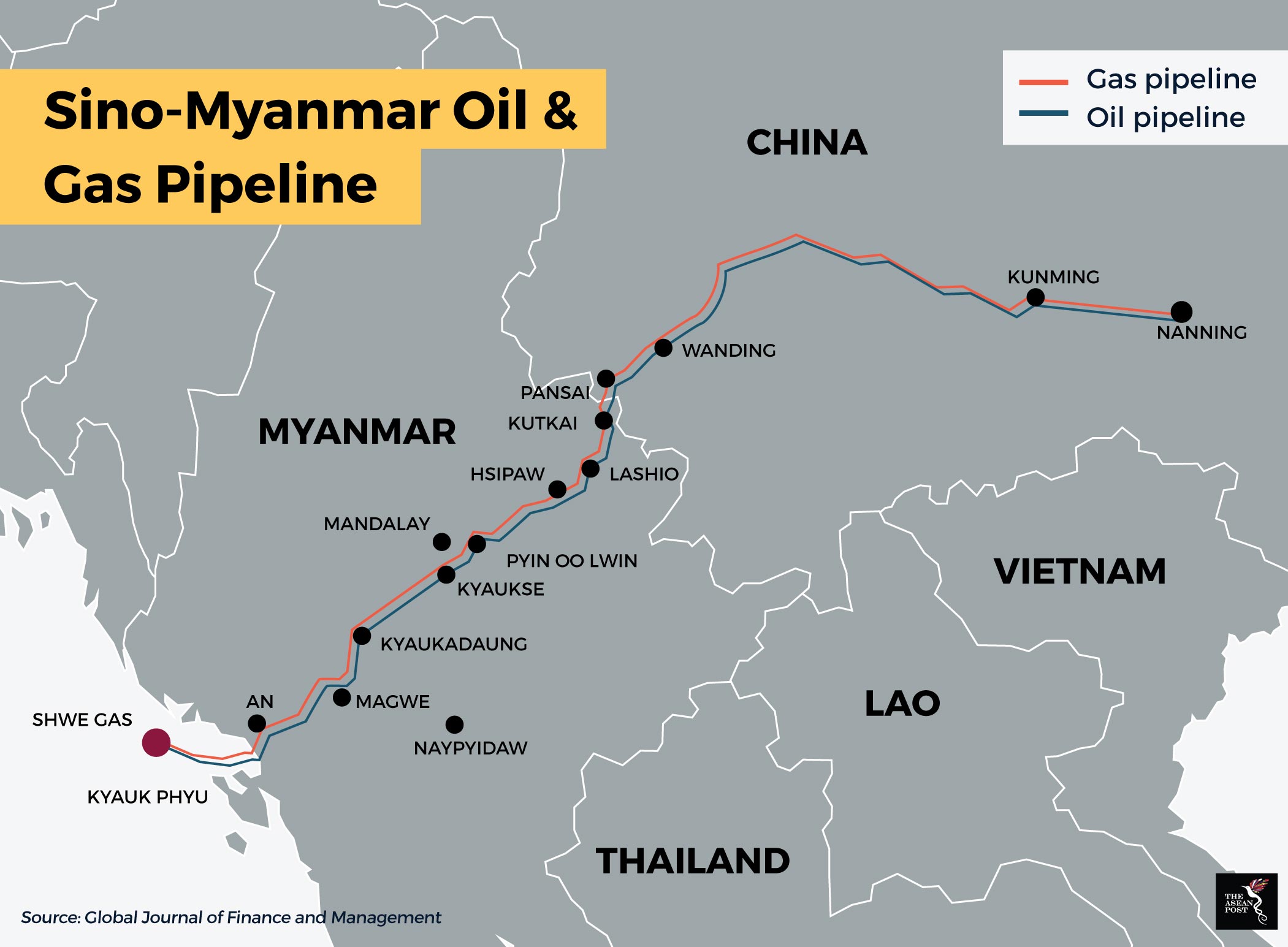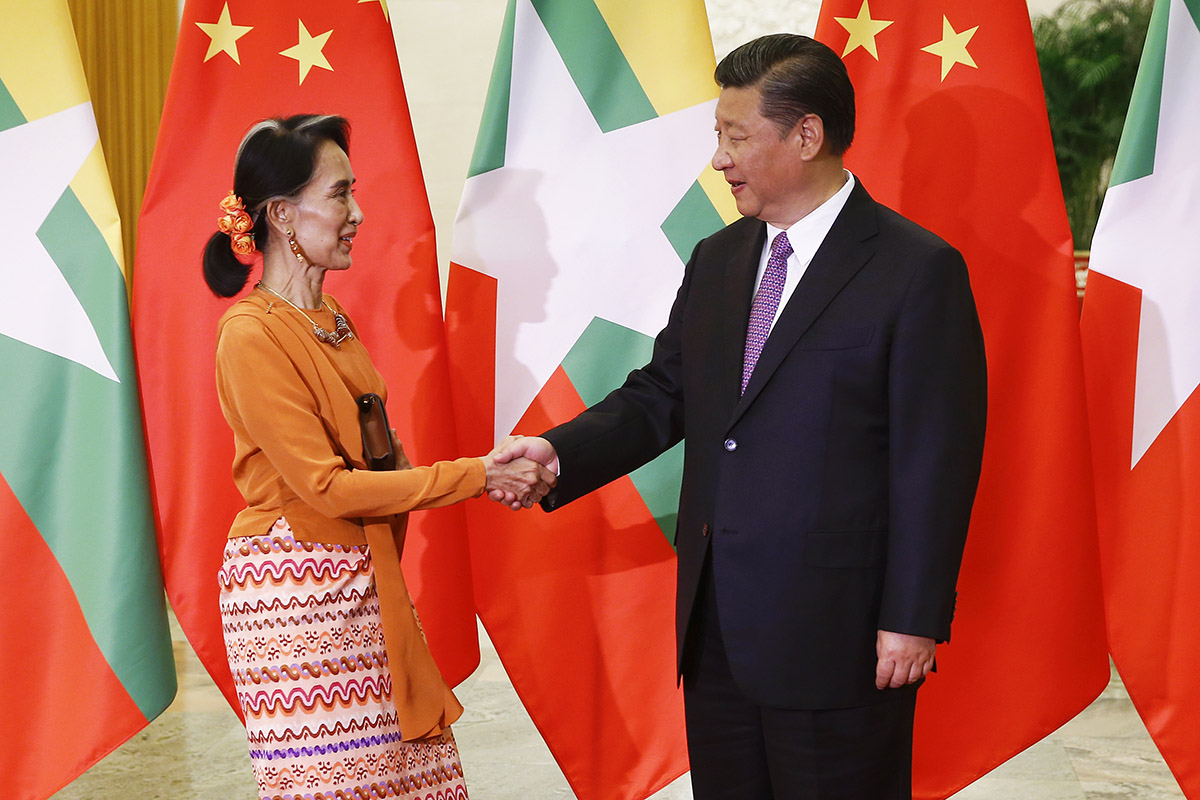China’s emergence as a global player and its generous foreign aid to Southeast Asian countries often leads to claims that its true actions are disguised and really a means to expand its power and influence throughout the region. However, Myanmar has adeptly managed its relations with the Asian powerhouse over the years and, contrary to popular opinion, is not really a Chinese satellite state.
Both countries have maintained a friendly relationship in order to preserve each other’s interests.
“China will maintain its friendly ties with Myanmar as it has in the past, and will see the China-Myanmar relationship from a wider, strategic point of view,” Chinese President Xi Jinping was quoted as saying by state news agency Xinhua in December, 2017.
“China is willing to work with Myanmar to ensure the development of relations stays on the correct path,” Jinping added.
More recently, China has taken a pro-government stance on Myanmar’s humanitarian issues in the Rakhine state. One reason as to why China has maintained it’s neutrality is that the issue does not directly affect China’s interests or border security. Of course, this situation has posed a new opportunity for China to advance its relations with Myanmar and its people at a time when Western governments are dissociating themselves. Other areas that China is strengthening ties with Myanmar include military cooperation and foreign investment.
China in military cooperation
Late last year China announced that it wanted closer ties with Myanmar’s military to help protect regional peace and security, according to Reuters. China requested for greater roles between the two countries’ armed forces, deeper training and technical exchanges as well as to promote border defence cooperation to ensure stability along their common borders.
Strengthened ties in military cooperation is also important as China is a key provider of military hardware to Myanmar. It has supplied more than 90 percent of Myanmar’s military transport vehicles, according to the SIPRI Arms Transfers Database. It has also provided warplanes and ships to Myanmar.
Myanmar also receives arms in the form of artillery guns, radar and night vision equipment from India, a military rival for China. This is another reason for China to further strengthen its military cooperation with Myanmar.

China as an investor
Maritime security expert at Nanyang Technological University in Singapore, Collin Koh said that expanding border security and military cooperation in Myanmar is important as it is a strategic location. This is because Myanmar could offer an alternative route for China to import 80 per cent of its oil and gas supply that comes from the Middle East and Africa. Currently, most of China’s imported energy is being supplied via the Straits of Malacca after bypassing the Bay of Bengal.
Two of China’s top investment projects in Myanmar that will act as the shortened access to the Indian Ocean, namely the Sino-Myanmar oil and gas pipelines and the Kyaukphyu Special Economic Zone (SEZ) are located in Rakhine.
Covering more than 1,700 hectares, the area was ascertained in 2013 as a joint venture between the governments of Myanmar and China, with the aim of providing an industrial and infrastructure base serving the two countries and wider trade channels. The gas pipeline is part of President Xi Jinping’s “One Belt, One Road” infrastructure and trade development plan, stretching across Asia to Africa and Europe. These investments will benefit both, China and Myanmar.
Myanmar’s position
Despite on-going crises, Myanmar could potentially continue to use its strategic geographical location to its advantage to extract maximum benefits from major powers in the Asian region. As China maintains its policy of Peripheral Diplomacy - “mulin, anlin, fulin” (be friendly, make them feel secure and help their economies prosper) - towards its smaller neighbours, its ties with Myanmar would be more of a strategic opportunity for Myanmar rather than itself, at this point.
Recommended stories:
